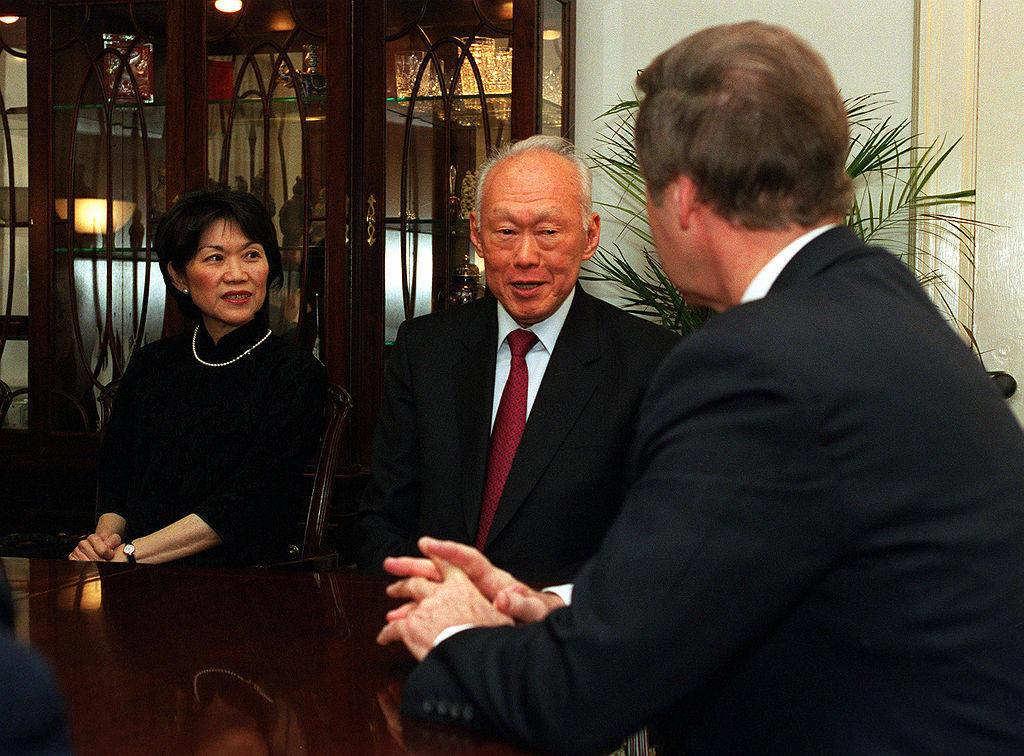[Photograph: US Secretary of Defense William S. Cohen (right) meets with Senior Minister Lee Kuan Yew (center), of Singapore, and Singapore's Ambassador to the U.S. Chan Heng Chee (left) on February 29, 2000]
Joseph Nye, the Harvard University political scientist who coined the terms ‘soft power’ and ‘smart power’, once described Lee Kuan Yew as a man “who never stops thinking, never stops looking ahead with larger visions. His views are sought by respected senior statesmen on all continents.”
Leaders sought out Lee for his vision and his grasp of geopolitics, but his power came from his achievement. He turned a mosquito swamp into a first world nation in a single generation.
He was also a powerful communicator, putting across his thoughts in a simple, clear and precise manner. His two-volume memoir (The Singapore Story and From Third World to First) as well as his speeches and interviews offer an engaging masterclass in governance.
To mark his first death anniversary, Founding Fuel picks a few lessons on leadership from that literature.

